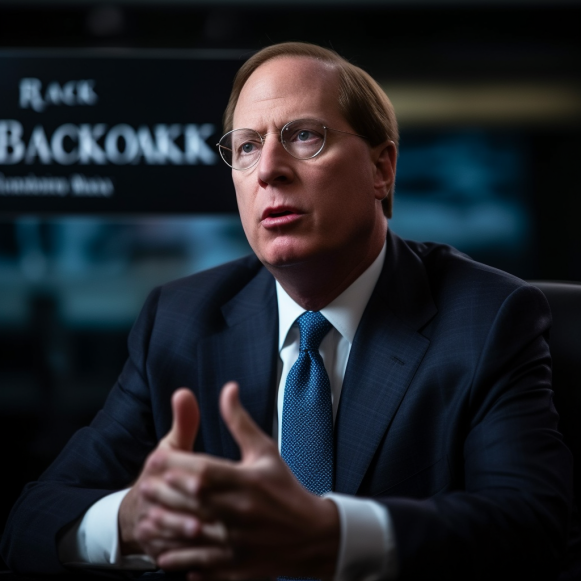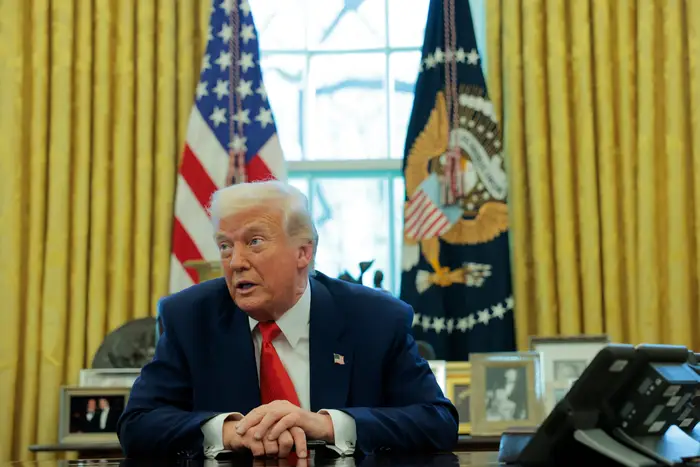A top-12% portfolio manager over the last 5 years shares how he finds unloved stocks trading at massive discounts — and 6 of the top opportunities in markets right now

- Leading portfolio manager Sam Peters has spent decades going against the consensus.
- Investing in discounted value stocks is both an art and a science, he explained.
- Here are six parts of the market where opportunities are waiting to be found.
As fund manager Sam Peters has discovered over the last three decades, value investing can be difficult, humbling, and even lonely.
“This job requires an enormous amount of humility,” Peters said in a recent Insider interview. “It’s forced on you because you’re always wrong.”
However, Peters has discovered that the rewards can be enormous. According to Morningstar, the $2 billion ClearBridge Value Trust Fund (LMVRX), which he has co-managed since 2010, has outperformed 88% of its large-cap value peers over the last five years. This includes a top-11% performance in its category thus far in 2023 — its best relative performance in a decade.
Markets are typically efficient, according to Peters, which means that stocks typically trade near their fair value. However, there are many instances where investors are overly pessimistic about a company, allowing value-oriented managers to profit handsomely.
Contrarian investing necessitates both conviction and patience. If an investment fails to pay off right away, stock pickers may begin to wonder who is insane — the market or themselves.
“There will be times when we will do the very lonely thing,” Peters admitted. “When things are so dislocated, we’re the ones who will step up and take the other side, but we clearly believe the fundamentals will improve at some point.”
How to find deeply undervalued stocks
Small discounts rarely pique Peters’ interest. Instead, the manager seeks stocks that he believes are trading at roughly two-thirds of their intrinsic value, even if they are currently unpopular.
“We consider inefficiency if the price versus value is more than 30% off,” Peters said. “And typically, that comes up for behavioral reasons — either a short-term overreaction to some pain, an earnings miss, or something where people are overreacting and price and value just get too dislocated — or when you’re going through a big regime change in markets.”
“I don’t know what’s going to happen in the future,” Peters later added, “but I want to be resilient to as many possible futures as I can.” And if I’m paying more than 30% less for something, I’m expecting very little from the future.”
Finding undervalued companies is both an art and a science, according to Peters. The art side refers to his investment thesis, or why a stock is expected to outperform the market. He stated that he needs to point to specific events in the coming years that will either support or contradict his theory so that he can evaluate his investment objectively and without being swayed by emotions.
Of course, any sound investment thesis should be backed up by data, such as a company’s projected growth rate and profit margins, according to Peters. According to the fund manager, he reverse-engineers discounted cash flow models to find stocks with low expectations that can outperform.
Because of this method, Peters’ portfolio frequently contains an unusual mix of companies that provide diversification while also having the potential to compound abnormally large returns over time.
“I can deliver a portfolio that doesn’t look like anyone else’s, but it’s not Frankenstein,” Peters explained. “We understand when we have more diversification than the market, and we end up with that unique portfolio with very good portfolio construction.”
While some fund managers focus solely on their process and ignore economic data, Peters remains adaptable. When growth rises or falls, he says he adjusts his portfolio by favoring either economically sensitive stocks or their defensive counterparts.
“In different market environments, we’re going to adapt to that, see what we’re getting paid for, and adjust the portfolio across the market cycle,” Peters said. He believes that doing so will prevent him from becoming overconfident and making poor investment decisions: “I want to create a portfolio that is immune to my poor forecasting because I know I can’t predict the future.”
6 cheap places to invest now
While many investors are excited about the possibility of a soft landing for the US economy, Peters is bracing for turbulence with a more risk-off portfolio.
“People desperately want a mega-cap-growth-driven cycle, low inflation, and a friendly Fed,” Peters explained. “I just don’t think we’ll get it.” “I believe COVID altered everything.”
“I think we’re going to be in a higher nominal rate environment, higher inflation environment, higher rate environment,” Peters added. That’s a completely different macro environment than the previous cycle, which was characterized by free money, zero cost of capital, very low growth, 2% real inflation, 4% nominal inflation, and no volatility — a completely different environment.”
According to Peters, such a scenario would favor value stocks over growth stocks. But, rather than becoming overly excited, he is remaining disciplined by prioritizing quality traits and low valuations, which are the primary drivers of long-term equity returns.
Peters is currently bullish on healthcare stocks, specifically large pharmaceutical and biotechnology firms. Healthcare has defensive qualities, but has remained inexpensive as investors seek protection in more expensive sectors such as consumer staples, he noted. Johnson & Johnson (JNJ) and UnitedHealth Group (UNH) are two of Peters’ largest holdings in these industries.
Insurance companies also stand out as a discounted subsector within financials, according to Peters, because they are one of the few groups that benefit from higher capital costs. American International Group (AIG) was mentioned by the fund manager as a top name to own in the space. According to him, AIG is led by a capable management team and trades at or near its book value.
“They’re taking out the risk, cutting costs, and improving,” Peters explained. “The ROE is rising, the volatility of their fundamentals has emerged, and I have the backdrop of a good insurance cycle, which I mentioned because there is insufficient capacity.” Everyone is reintroducing risk.”
Finally, Peters mentioned Noble (NE) and EQT (EQT) as two of his favorite energy companies right now. Both are among the ClearBridge Value Trust Fund’s top ten holdings.
In Peters’ words, Noble is an offshore drilling company that has paid off debt after emerging from bankruptcy and now has a “fortress balance sheet.” Noble generates enough cash to match its own enterprise value every three years, according to Peters, in addition to having significant pricing power. It also rewards shareholders by paying a dividend and repurchasing stock.
According to Peters, EQT is a top natural gas producer with a strong CEO in Toby Rice and a free cash flow yield of around 20%. It has also made an impressive comeback by paying down debt, which has fueled its stock’s rise from mid-single-digit levels in 2020 to north of $40 today.






